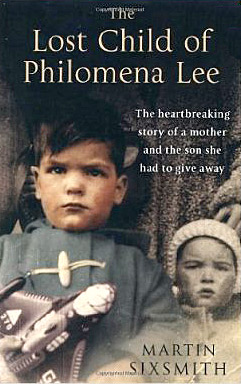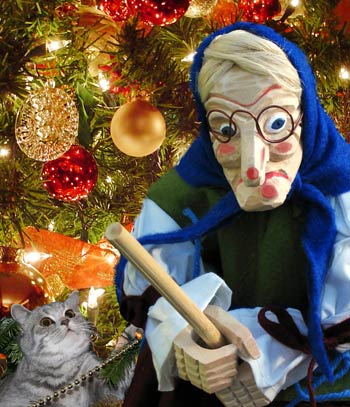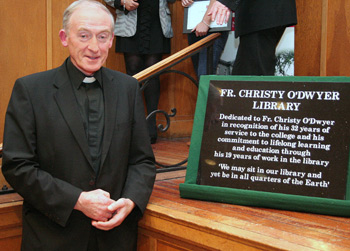“Judge not, that ye be not judged. For with what judgment ye judge, ye shall be judged: and with what measure ye mete, it shall be measured to you again.” St. Matthews Gospel Chapter 7: v 1-2
 Regularly we receive requests, mainly from Tipperary expatriates, inviting us to recommend titles to books about Tipperary, its past history and its undoubted scenic beauty.
Regularly we receive requests, mainly from Tipperary expatriates, inviting us to recommend titles to books about Tipperary, its past history and its undoubted scenic beauty.
In relation to our past, one such compelling book comes highly recommended, from the pen of ex-BBC correspondent Martin Sixsmith, published some three years ago. It is “The Lost Child of Philomena Lee,” now also about to be launched as a new film directed by Stephen Frears and entitled ‘Philomena.’
In the film version the main role of Philomena Lee, an Irishwoman in her 70’s, is played by the Oscar-winning actress Dame Judi Dench, supported by actor, comedian and producer Steve Coogan.
Both the book and film tell the heart rending story of Anthony Lee, a three year old boy who was born in the mother and baby home, run by the nuns and known as Sean Ross Abbey, here in Roscrea, Co Tipperary. It details in particular the trials of his unwed mother Philomena, who was forced to give up her baby for adoption, a few years after his birth.
At the time of Anthony’s birth, readers must understand that the democratically elected Irish government of the period were paying the church £1 a week for every woman in its care, and two shillings and sixpence for every baby in similar circumstances. This same Irish government, however, were not so generous to the babies born of unwed mothers, who choose to run this gauntlet of assumed shame while remaining outside this prescribed ‘mother and baby home,’ system.
In the 1950’s young unwed mothers were harshly judged by the vast majority of Irish society, not just Roman Catholics. As horrible and tragic as this compelling story will read, one must remember that society, the nuns and the church who undertook this social remedy, did not perceive themselves as evil, instead the motivation behind their actions, while misguided, was mostly seen from the point of view as being for a child’s future betterment.
The girls’ parents, because of perceived social family shame and secrecy, together with these nuns truly believed that these adopted children would possibly be better off with the stability of a two parent family. The nuns firmly believed as did unnecessarily embarrassed families that by hard work in these religious establishments girls would somehow atone for their sexual transgressions and thus redeem themselves morally in their lifetime. Of course these actions undertaken did not take into account the feelings of the mother and child. Both then and even in more recent times, with the church’s role in these adoptions emerging and with much of the incriminating paperwork disappearing in somewhat unexplained circumstances, the church continues to guard itself in its role played in these adoptions.
When she became pregnant as a teenager in the Ireland of 1952, Limerick native Philomena Lee, aged 19, was sent to Sean Ross Abbey convent in Roscrea Co. Tipperary, to be cared for as a ‘fallen,’ woman. Having given birth, she was permitted to care for her new born for three years until the Church took him from her and sold him, like countless others, to America for adoption.
After giving birth, these ‘fallen women,’ mere girls, were allowed to leave the convent, but only if they or their family could afford to pay the nuns £100. Those who couldn’t afford this substantial sum, which were the vast majority, had to leave these girls in the convent for three years, where the latter occupied themselves in kitchens, laundries, greenhouses or making rosary beads and religious artefacts, while the church kept the profits from their labours.
Like all the other girls in similar circumstances, Philomena Lee would be made to sign a ‘Renunciation Document,’ agreeing to give up her son, while swearing on oath: “I relinquish full claim for ever to my child and surrender him to Sister Barbara, Superioress of Sean Ross Abbey. The purpose is to enable Sister Barbara to make my child available for adoption to any person she considers fit and proper, inside or outside the state.” From the end of the Second World War until the 1970s, such oaths would now entitle these children born out of wedlock to be the property of the church and now with or without the consent of their mothers, these babies could be sold. In fact the only condition laid down by the then Archbishop McQuaid was that adopting parents should be acknowledged as fully practising Roman Catholics.
Philomena cried when Anthony was taken from her that Christmas period of 1955. She was not told he was being taken and it was felt that it was in her best interests that she should not be allowed to say goodbye.
Philomena’s son Anthony would now vanish from Ireland; sold to an American couple from St Louis, Missouri, USA, to re-emerge under the adoptive name of Michael Hess. Anthony (Michael Hess) would go on become a Senior Counsel to both the George Bush Snr and Ronald Reagan administrations. Philomena and Anthony, despite much searching for each other, would never be reunited, though both he and his mother visited Sean Ross Abbey, Roscrea, Co Tipperary several times over the decades, both individually inquiring about the whereabouts of each other.
Truly a heart rending remarkable true story and a ‘must read‘, for all book lovers in Tipperary and further afield.
Highly recommended as a stocking filler for all those loving dedicated mothers out there, with Christmas just some eight weeks away.
 Seán Hogan, a native of Puckane in North Tipperary and the author of best-selling book “The Black and Tans in North Tipperary, Policing, Revolution and War 1913 – 1922,” will be the guest speaker at the Borrisoleigh Historical Society’s second lecture of this season to be held on Tuesday night next, December 10th, 2013, in the Community Centre at 8:00pm.sharp.
Seán Hogan, a native of Puckane in North Tipperary and the author of best-selling book “The Black and Tans in North Tipperary, Policing, Revolution and War 1913 – 1922,” will be the guest speaker at the Borrisoleigh Historical Society’s second lecture of this season to be held on Tuesday night next, December 10th, 2013, in the Community Centre at 8:00pm.sharp.




Recent Comments